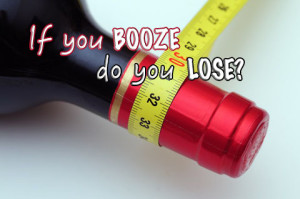 When it comes to maintaining health and fitness, we all have our weakness. For many of you, alcohol may be the feel good drug of choice, especially given its rising popularity in many of society’s traditions.
When it comes to maintaining health and fitness, we all have our weakness. For many of you, alcohol may be the feel good drug of choice, especially given its rising popularity in many of society’s traditions.
However, I’m sure you are all familiar with the well-documented negative effects of alcohol- diminished performance, mental impairment, possible addiction, risk of liver disease. In particular, the effects of alcohol on body composition has been gaining much attention.
Are you interested in how alcohol is impacting your fitness goals? Pull up a bar stool and let me fill you in.
1. Alcohol suppresses fat loss
Alcohol interrupts the process of fat oxidation (or more simply, ‘fat burning’). When alcohol is consumed, it is broken down into acetate. In attempt to remove this toxic by-product, the body prioritises acetate as its primary source of energy over fat oxidation resulting from regular consumption of carbs, proteins, and fats. With oxidation of carbs, protein and fat on hold, we end up with a surplus circulating the body. So where does it go? That’s right, its converted to fat and stored in your waistline!
2. Alcohol provides empty calories
According to the NHS, the average wine drinker in England takes in around 2,000kcal from alcohol every month. And for you beer and cider fans, did you know that drinking five pints of lager a week adds up to 44,200kcal over a year? That’s equivalent to eating 221 doughnuts!
At seven calories per gram, alcohol supplies almost twice as many calories as protein and carbohydrates. Moreover, alcohol is not considered a nutrient essential for the maintenance bodily functions, and therefore provides empty calories. Adding mixers such as sodas, juices and syrups to create your favourite cocktail can increase your caloric intake by up to 300 kcals!
3. Alcohol increases appetite
Have you heard of the an aperitif? This is the term given to the consumption of alcoholic beverages served before a meal to stimulate appetite. Several studies have shown a significant increase in caloric intake when alcohol is consumed before a meal. Particularly, alcohol tends to leave you craving for salty, greasy and high fat foods – a recipe for weight gain.
4. Alcohol lowers testosterone
Heavy drinking decreases the levels of the hormone testosterone, resulting in decreased ability to build lean muscle and therefore a lowered metabolic rate
So do you ditch the drink? I’m a strong believer in creating healthy habits – not restrictions. For a sustainable and enjoyable healthy lifestyle, no food or drink should be avoided. Alcohol to many is pleasure and like most things the key is moderation.





Share your thoughts...